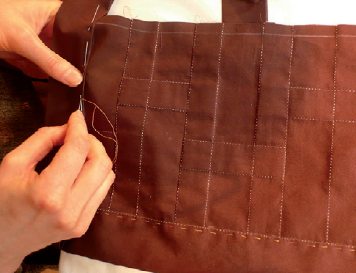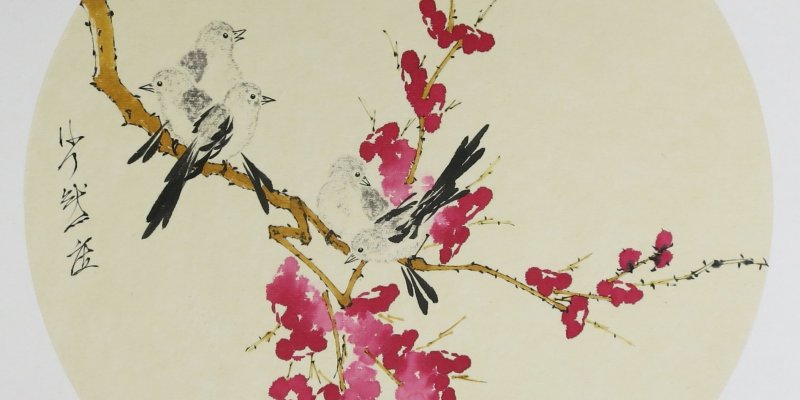
The " Golden Fingers" Zen Retreat - February 2019
With zen master Emmanuel Ryugaku Risacher.
Program
WORKSHOPS ( Sumi-e, Kesa sawing, Shiatsu & Do-In, The 34 sounds of zen, Ikebana, Raku, Permaculture, Samu, Kitchen, Voice studies ) - from 16th to 24th february 2019
Arrival Workshops : Friday 15th of february afternoon. Dîner at 20h30.
7h00 Zazen
9h30-12h00 Workshop
12h30 meal
14h30-17h Workshop
18h Zazen
19h30 Meal
Departure: For those who only came to the workshops, on Thursday, February 21 after breakfast.
For those who stay, rest day is February 21.
SESSHIN (zen meditation's retreat ) - from 22nd to 24th of february 2019
Arrival of sesshin on Thursday afternoon, February 21, dinner at 8:30 pm.
Sesshin ends on Sunday, February 24 after lunch.
Online registration : HERE
The golden fingers
The Golden Fingers Week is a unique opportunity to combine the practice of Zen and artistic expression by discovering a technique or by deepening it. And it is, as the Buddha recommends, the ideal opportunity in the context of the Gendronnière to see, to observe the attachments, fears and mental habits that hinder our own creativity.
Learning to let the creative act take place at every moment, beyond the conditioned representations of the "self" and its negative judgments, brings great joy and leads to inner tranquility. Accept what is presented, as it is!
With a little paint, a brush, a needle and a thread, with the hands, with the body, let the creative interiority express itself. It is neither the support, nor the means, nor the result that matters, but the conscious actualisation of the original nature that animates the gesture, contains and fills the form.
Practice of the Buddha's way
Zazen is the sitting meditation without object, as practiced by the Buddha and transmitted through time by an unbroken line of masters. It is the recollection in the silence and nakedness of the present moment. It is a return to what is "before" the thought unfolds to try to grasp what simply is.
This is done effortlessly when attention simply returns to what is presence. The time of meditation escapes time itself because it is a return to the still source of our existence. When the original source is seen, each breath, each action, each movement spontaneously becomes the luminous expression of life itself, and the duality between subject and object disappears.
During the five days of the workshops, zazen will be practiced in the morning and late afternoon.
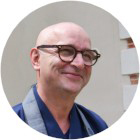 Emmanuel Ryugaku Risacher
Emmanuel Ryugaku Risacher
Ryugaku will be in charge of the Golden Fingers session he is organizing with Françoise Kosen Laurent. He was ordained a Bodhisattva in 1972 and a monk in 1980 by Master Deshimaru. In November 2008 he received the Dharma transmission from Genshu Imamura Roshi. Since the summer of 2016 he has been in charge of the temple of La Gendronnière.
Workshops
Cooking practice in Zen

With our food, we feed our loved ones, our friends and ourselves. Cooking with a simple mind, making dishes in good taste, with regional and seasonal products, at a reasonable price: a cuisine with a minimum of waste and prepared with a clear mind. Take your time, be conscious in the moment, at the service of others.
This workshop is part of the gyoji of the temple: zazen, genmai, preparation of meals for the other workshops, elaboration of menus according to the production of the vegetable garden.
"Put your alert mind to work and constantly strive to provide meals that are full of variety and adapted to needs and opportunities, and that will allow everyone to practice the Dharma with their bodies, with as few obstacles as possible. "Dogen Zengi (1200-1252)
The teacher: Christiaan Kõsan Degrande is a Zen monk, a disciple of Roland Yuno Rech. For 18 years he was a vegetarian cook in the Koningsteen Centre. Since 2011 he has been cooking as a tenzo in many sesshins in Belgium, Germany and Italy. Since February 2018 he has been tenzo at La Gendronnière.
Ikebana
A traditional style of ikebana called kakubana can be a support for meditation, thus the basis of a spiritual path. The Kakubana style dates back to the end of the 17th century. It was codified under this name by Ippo Mishôsai (1761-1824), founder of the Mishô school. This style is typical of the school. The kakubana is based on a Chinese cosmogonic principle represented by a diagram. The latter also forms the basis of its aesthetics. To compose a bouquet, you have to mentally imagine this diagram just above the vase.
During the five days of the internship, we will develop this principle, to learn how to apply it to your works and introduce you to the path of flowers. We will also discuss modern ikebana.
Each participant must bring a pruning shear and at least one flower picnic. You will be asked to participate in the purchase of the flowers, but you can take some of your bouquets with you at the end of the course.
The teacher: Nobuko Matsumiya is an ikebana master, tea master, koto player, singer, founder and leader of a Japanese folk group, the Sakura Ensemble. Originally from Kyôto, the capital of traditional arts, she taught ikebana and tea privately before her arrival in France in 1987. She is a member of the Mishô School of ikebana (Mishô-Ryû), one of the main schools in Japan and is taught by Seiho Tachibana. She has been practicing the flower path since 1970 and graduated as a teacher in 1973. In 1994, she was ordained a Bodhisattva under the name of Reigi, in French "attitude spirituelle".
Raku
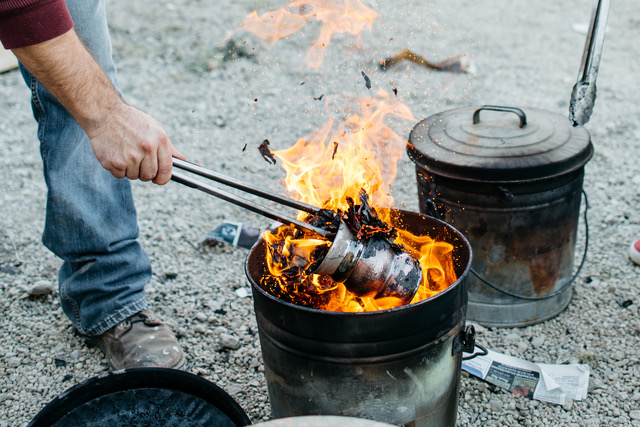
For the duration of a bowl, trace the genesis of the earth that provides us with the raw materials to leave our mark and mark history. An ephemeral grain of sand in a world in motion, this granite that has become sandstone over millions of years and then become a bowl, a cup, in a few days, depending on the creativity and needs of mankind.
Let's take a "rakurci" for one session, and come and experience the various types of shaping (modelling, plate, tower, stamping), discover the world of enamels and perform a raku firing, while benefiting from an introduction to the phenomena that make up the universe of the earthworker.
The teacher: After a stint at La Gendronnière, Cécile Bardenet went to learn ceramics. As she continues to meet people and travel, she always goes a little further in this link with the earth and man. Now settled as a ceramist in eastern France, she works with stoneware to shape utilitarian objects and develop high temperature (1,300°C) enamel work while remaining linked to the world of Zen.
Sumi-e
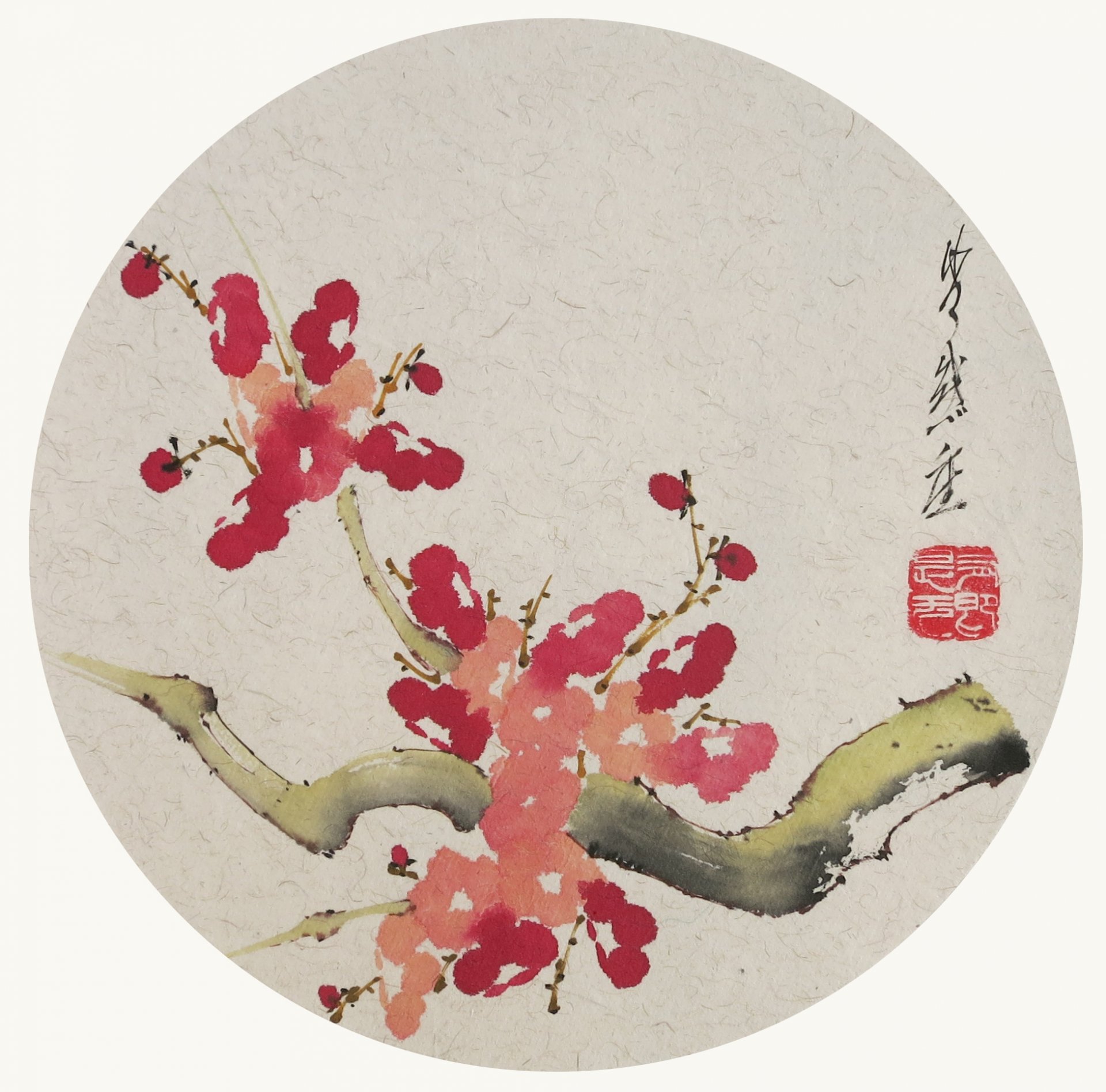
Sumi-e originated in China and was introduced into Japan by Zen monks more than five centuries ago.
The Japanese term “sumi” means “black ink” and “e” means “painting”. It indicates one of the art forms in which subjects are painted with black ink in all possible gradations ranging from pure black to the lightest shades achieved by diluting the ink with water. In order to paint, we only need a brush, a black ink tablet, a stone (suzuri) and a sheet of rice paper.
This way of painting is complete, it involves the whole body. It is not easy at all and working with an expert teacher is necessary, as well as getting used to repeating subjects, or parts of them, innumerable times. The spirit becomes more and more refined and sensitive through constant repetition.
Everyone whatever their level, interested or curious to experiment this "old" oriental approach, will find a new and spontaneous way of artistic expression.
Thanks to a correct and relaxed posture which influences a deeper breathing, the coordination and the fluidity of the gestures improves. Sumi-e is not the learning of a simple painting method. It is the direct contact with our essential being, Buddha nature, beyond "doing" or "not doing". Life created by the touch of the brush strengthens Life itself.
Participation to the workshop (brushes, ink, paper and rice paper) : 25 €
The teacher : Beppe Mokuza Signoritti, Zen monk, disciple of Roland Yuno Rech, has been practicing sumi-e for about twenty years. He exhibits and gives lectures and practical demonstrations throughout Europe. www.sumi-e.co.uk
Shiatsu et Do-In
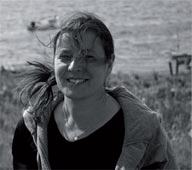
Shiatsu (finger pressure) is a manual technique of Japanese origin whose theoretical foundations are derived from traditional Chinese medicine.
By acting on all meridians, shiatsu, listening to the patient and his ailments, harmonizes the circulation of Qi in the body by releasing tensions or blockages. By rebalancing the body's main functions, it helps to restore its natural balance. In Shiatsu Zen, the right attitude of the body/mind is essential.
The workshop is hands-on, you will learn the basic postures and gestures of shiatsu that you can then share with those around you. It also includes do-in sessions (self-massage and flexible stretching) with many beneficial effects both in the practice of zazen and in everyday life.
Theoretical elements on Qi, Yin-Yang, Kyô and Jitsu (empty and full) and meridians will be studied.
The teacher: Closely linked to Japan and its traditions, Christine Marie Bottin studied Japanese and worked on traditional arts, transmission, artistic and craft practices, Buddhism.
Disciple of Master Taisen Deshimaru, she began practicing zazen in 1978 and was ordained a nun in 1981. Since 2009, she has been studying and practicing shiatsu from the Iokai school taught by K. Sasaki (direct lineage of S. Masunaga).
Exploring the voice
 While taking root in the depths of the body, the voice is open to the world and others.
While taking root in the depths of the body, the voice is open to the world and others.
This workshop proposes the development of the potentialities of the voice through an approach combining massage therapy and vocal techniques.
In a massage session, the relationship between the donor and the recipient allows to develop an intuitive listening of the body. The dynamics that develop between them make it possible to identify tensions and facilitate their relaxation, which facilitates access to the body's various resonators (jaw, larynx, palate, nasal cavity, rib cage, skull, etc.).
In a friendly and playful atmosphere, the workshop will allow everyone to become aware of the uniqueness of their voice. Resonator awareness, voice placement technique, group vocal games and melodic exploration complete the series of tools that the workshop offers to discover the expressive possibilities of the voice and the resulting liberating pleasure.
The teacher: Alain Pelletier is a graduate of the Conservatoire d'art dramatique du Québec, an institution in which he studied vocal techniques. He also has a degree in shiatsu massage therapy. A Zen monk, he currently lives in La Gendronnière.
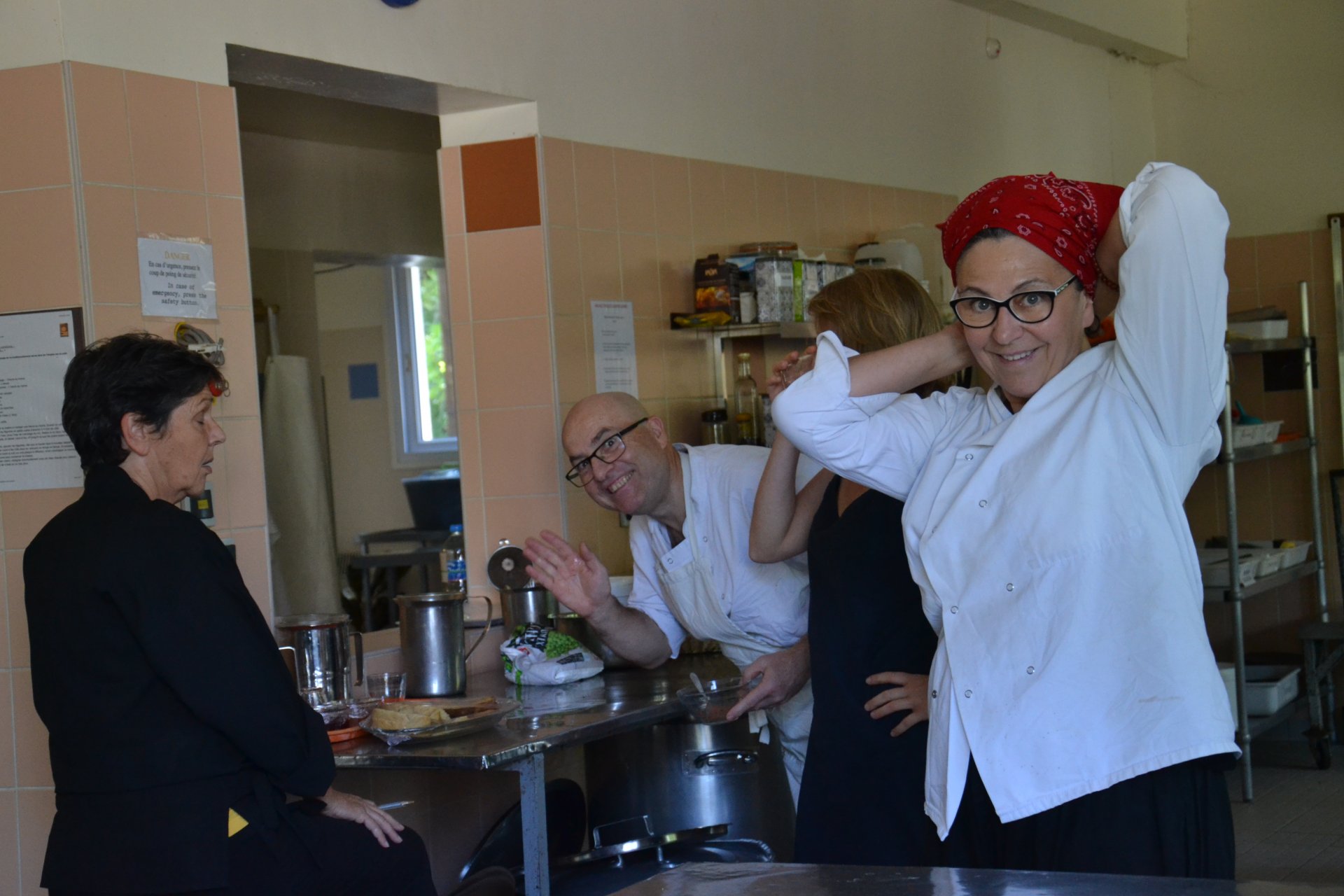 Samu practice
Samu practice
Samu, the generous action essential to the life of the community and the good conduct of the temple for the benefit of all.
For those who wish to donate their energy to the Sangha and the temple, it is the possibility to participate in the organization of the session (service, cleaning...) according to needs.
The 34 Sounds of Zen
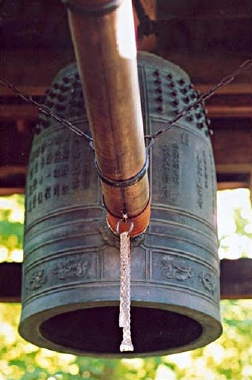
Over time, the Buddha's path has developed through various forms. In the Soto Zen tradition, these are all placed at the service of spiritual realization. Thus the life of the dojos, temples and monasteries is notably punctuated by codified sounds which are each time the occasion of a concrete experience, as much for the person who produces them as for the person who hears them. In this workshop, you can learn or perfect the practice of these sounds: wood, metal, drum, mokugyo, various gongs and bells, without forgetting the singing of sutras. You will put the teachings into practice by coaching the Spirit of Gesture session throughout the day. What then to make benefit your group of zazen according to the place and the demand!
The teacher : Michel Jigen Fabra, Zen monk, disciple of master Roland Yuno Rech, created the Carpentras dojo in 2002 and directed it for seven years, before going to the Gendronnière Zen temple, where he held the functions of shuso and ino (responsible for sounds) for five years. In August 2014, he received the transmission (shiho) from Master Yuno Rech. He is currently responsible for teaching at the Poitiers dojo.
Kesa sawing's class
Sewing the kesa means making the Buddha's clothing according to the method transmitted from Shakyamuni. Abandoning any desire for decoration or personal innovation, we focus on each step and each point, with patience and determination. Unconsciously, naturally and automatically this practice changes our minds. From our strengths is born the pure garment of the Dharma and we realize the highest dimension of creativity. Master Kodo Sawaki said: "The kesa is the fabric that becomes Buddha."
The teachers: Françoise Kosen Laurent and Tina Chinmyo Feller, Zen nuns, have been practicing and teaching kesa sewing for many years, in dojos and sesshins, and more particularly at the Gendronnière.
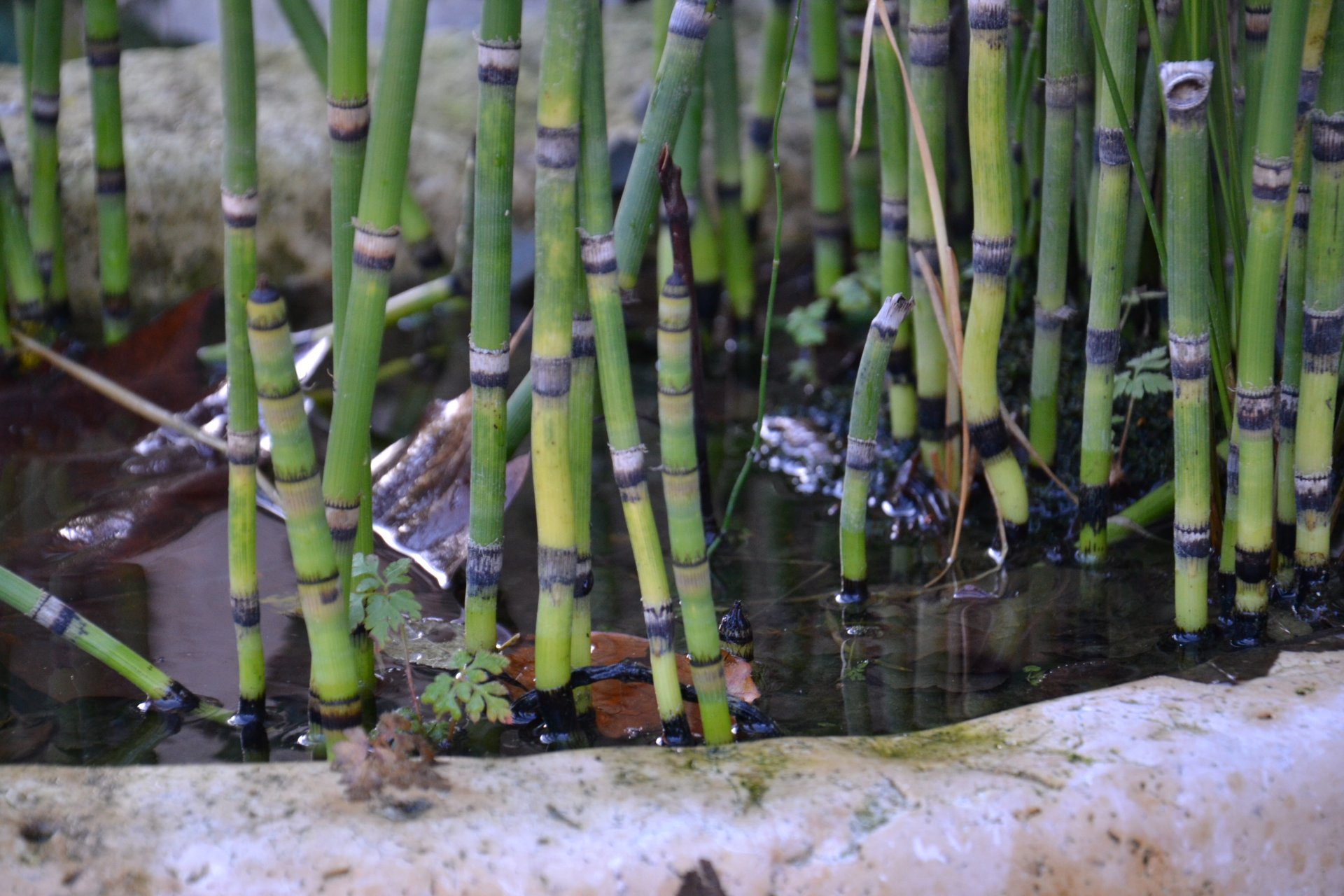 Permaculture
Permaculture
Inspired by the laws of nature to grow our food is the proposal of permaculture. The care that the tenzo (cook) takes with food is preceded by the care of the gardener for the earth. To harmonize with all beings is to harmonize with nature. Inspired by the Zen spirit, Masanobu Fukuoka, a Japanese farmer and pioneer of permaculture, developed his natural methods based on "non-action". Teaching and applying these principles will be the content of this gardening workshop. Between training and activities (samu), we will explore how to update the way in the daily gestures in the vegetable garden.
The teacher : Raimund Olbrich is a Zen monk, gardener and market gardener. He was responsible for the Gendronnière vegetable garden for several years. Since 2018, he has been working on it again as part of the "permaculture project".
Registration and prices
WORKSHOP Room 4-5 359 euros / Room 2 persons 431 euros / Single room (subject to availability) 530 euros
WORKSHOP " The 34 sounds of zen, Permaculture, Kitchen " Room 4-5 283 euros / Room 2 persons 339 euros / Single room (subject to availability) 417 euros
SESSHIN ( zen meditation's retreat ) Room 4-5 121 euros / Room 2 persons 151 euros / Single room (subject to availability) 185 euros
SAMU Room 4-5 98 euros / Room 2 persons 117 euros
IMPORTANT
• Parental authorisation is necessary for minors.
• Membership of the association AZI is obligatory : 45 euros (35 euros those with limited ressources).
• Animals not allowed.
REGISTRATION
- by mail please fill out and send this form
- Online registration : HERE
- Informations 0033 -2 54 44 04 86 ou lagendronniere@zen-azi.org
Temple zen de la Gendronnière
41120 Valaire (près de Blois)
PRACTICAL INFORMATION
See HERE

